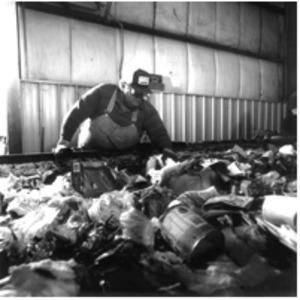Byline: Tony Horwitz; 1994-12-01; Wall Street Journal; pages 1
Report: "9 to Nowhere" - Tony Horwitz - Wall Street Journal
Tags: posed as, poultry-processing, worked as
Article LinksMorton, MIss. -- They call it "the chain," a swift steel shackle that shuttles dead chickens down a disassembly line of hangers, skinners, gut-pullers and gizzard cutters. The chain has been rattling at 90 birds a minute for nine hours when the woman working feverishly beside me crumples onto a pile of drumsticks. "No more," she whimpers. A foreman with a stopwatch around his neck rushes up. "Come on now," he bellows. "Pump it up.!" Down the chain, a worker named Jose yells and waves wildly, like a drowning man. Bathroom trips are discouraged and require approval. But the foreman can't hear because of the din, and Jose is left grimacing and crossing his legs. Finally, half an hour later, a weary cheer ripples along the line. "The last bird's coming!" someone shouts. Jose sprints toward the bathroom -- and right into the path of a cleanup crew hosing offal into floor drains. Jose slips and then flops onto a sodden bank of fat and skin. "Gotta go," he says, struggling up from the mire. "Gotta go."
Description:This was the centerpiece of Tony Horwitz's 1994 series for the Wall Street Journal on dead-end low-wage jobs for unskilled workers. It involved his pose as a worker in a poultry processing plant and won the 1995 Pulitzer Prize for National Reporting. It was the first story involving undercover reporting techniques to win the Pulitzer since the controversy over the Chicago Sun-Times Mirage bar series during the 1979 judging.
Rights: Access to online material.
